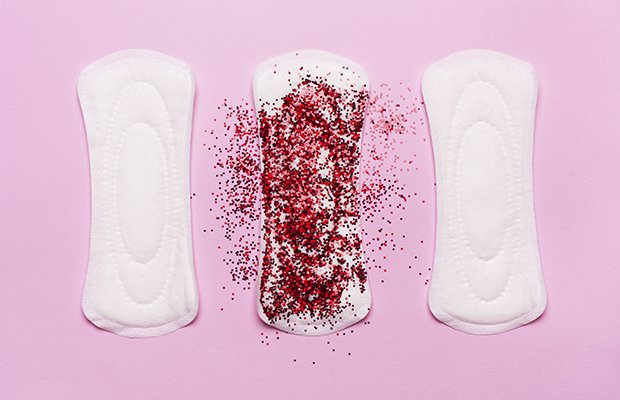
Periods aren’t typically a surprise – until they show up a day or two early while you’re wearing white jeans.
What is surprising is the sight of black blood in place of what is usually red. I don’t mean the dark discharge at the start or end of a cycle, I’m talking second-day, heavy-flow, soak a tampon blood that looks full-on black.
READ MORE: 5 Alternatives To Pads And Tampons You Should Think About Trying
While, yeah, it’s unsettling to see anything other than bright red on your tampon or pad, it might be more common than you think. If periods are good at anything – besides, you know, clearing your body of built up uterine lining – it’s keeping you on your toes.
Okay, so why does my period blood look black?
Take a deep breath because this is no cause for concern. Black period blood is just “blood that’s older, that’s started to clot a little bit,” says Dr Rachel Peragallo Urrutia, an assistant professor of general obstetrics and gynaecology.
READ MORE: 6 Reasons Your Period Cramps Hurt So Bad – Other Than PMS
When the lining of your uterus starts sloughing off once a month, the blood doesn’t always come out right away and the longer the blood sits in the uterus, the darker it gets, says Urrutia.
While very heavy bleeding could be a sign of something more serious like endometriosis or an infection like pelvic inflammatory disease (PID), Urrutia says you’ll usually have symptoms other than just black or dark blood – like severe cramping, pain during sex, or difficulty getting pregnant – in which case you should definitely holler at your doctor.
Well, can I do anything about my black period blood?
Nope. Uturria says nothing can really change the colour of period blood – though if you’re concerned with the amount of bleeding that comes with your period, you can talk to your doctor about birth control options like an IUD that might help reduce bleeding a bit (or get rid of your periods altogether).
READ MORE: 11 Ways To Get Rid Of Period Bloating
But, she says, “the stuff that makes you healthy in general, like getting good sleep, getting regular exercise, eating good quality foods, trying to avoid a lot of chemicals in food and in your environment can all be helpful for hormone balance” and, in turn, overall reproductive health.
Still, it’s important to always pay attention to your body and the signs it’s giving you. If you’re concerned about your black or dark blood, bring it up during your next gynae appointment – while it might not point to anything scary, it’s worth having peace of mind.
This article was originally published on www.womenshealthmag.com
READ MORE ON: Health Health Advice Periods Sexual Health
